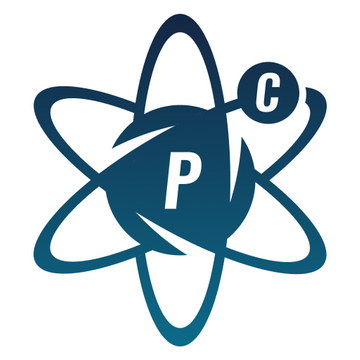Top Methodology for Software Development
 Powercode
PowercodeTable of contents

Every business owner who gives a project to an outsourcing company or in-house team wants to get the perfect result. But few people know that competent team management is the secret to successful software. The customer needs to decide on the methodology for the app development process to go smoothly. There are many methodologies for different projects; they have pros and cons. If you decide to move your business online but do not know how to build a work process — software development methodologies will help bring the project to the desired result.
What Is Software Development Methodology
A software development methodology is a way that gradually guides a team toward successfully completing a project. This approach benefits the customer and the team. The main advantages of the method are:
- well-planned budget;
- efficient specialists' work;
- clear time frames;
- risk reduction;
- quick entry to the market;
- customer satisfaction.
Most IT companies have already understood the importance of the development methodology and are massively implementing it into their work. According to Statista, in 2021, companies used five popular methodologies: DevOps/DevSecOps was the most popular (35.9%). To not select a methodology based on data but to choose the one that will benefit your project, you need to check all actively implemented techniques at the moment.
Popular Software Development Methodologies
The choice of an experienced development team is not a guarantee of harmonious work. Since each specialist needs to be managed competently, it is best to use proven techniques. For this purpose, progressive IT companies introduce one of the development methodologies. For each project, they choose the method which will bring the most profitable result. To ensure the business software quality, you can independently select a development methodology from the most commonly used options.
DevOps and DevSecOps
Based on Statista, DevOps and DevSecOps were the most popular in 2021. They are devised to speed up the development lifecycle and bring software to market quickly. DevOps and DevSecOps are based on collaboration between departments working on the same project. The IT teams use it to improve cooperation, feedback, accountability, and automation. DevOps stands for development and operations, which means teams approach tasks together. It is an endless loop:
- Planning.
- Coding.
- Building.
- Testing.
- Release.
- Exploitation.
- Getting feedback and planning again.
With this approach, the outsourcing team creates software tailored to the client's requests, considering users' unique needs. DevOps is cost-effective as it optimizes the working time and helps employees deliver a great app on the first try. DevSecOps is development, security, and operations. Its main advantage is thinking about safety. In this way, teams can prevent errors during production and reduce the likelihood of changes after the release. It will improve the user experience and increase the effectiveness of security work. DevSecOps also speeds up development and time-to-market. Since it is similar to DevOps, this methodology unites all project workers and improves productivity.
Scrum
Scrum is great for projects where customer requirements are not fully formed or clear. Since there is only brief planning at the initial stage, you can discuss the future features of the application at daily meetings during the development process. Thanks to this approach, work on the platform takes less time than when implementing other methodologies and reduces misunderstanding between the client and the outsourcing company at the release time. This methodology breaks into sprints (blocks of time) for which the team writes tasks separately. Therefore, if you choose Scrum, you agree that you will have to plan a lot.
Waterfall
This methodology got its name because its development process looks like a flow. One phase of the project follows another in strict sequence. This way of conducting the workflow involves constantly updating the documentation since each stage must be agreed with the customer. Working out additional requirements from the client will increase the budget and time costs. The advantages of this method are:
- accurate assessment of the project at the stage of requirements definition;
- structured approach;
- rapid identification of errors or shortcomings;
- easy task understanding thanks to the documentation.
If you decide to digitize your business, but your ideas about software are blurred, the waterfall will be the best choice. But remember that this methodology is not flexible, so there is a significant risk of increasing costs during the development phase.
Lean
The Lean methodology has become a real sensation in the IT field. It is also called lean manufacturing methodology, and it helps the team to build their work on software, eliminating useless processes effectively. Lean works on the principles of MVP: you study customer problems and solve them with an app with the necessary features set. It helps the customer reduce the time and budget for further platform improvements. Before developing, the IT team carefully checks the project's specifics and focuses on end users' satisfaction. This way, they can implement more elements to solve customer problems in a shorter amount of time. In the end, the client receives a high-quality application that can easily change according to market trends.
How to Choose a Software Development Methodology
There are enough development methodologies to find the right one for your project type. But the question arises before the customer and the team: which one to choose to achieve the desired result?
Define User Need
The product audience is an essential factor in choosing a software development methodology. If you have a narrow audience that has formed specific requirements and is not going to change them — the Waterfall methodology is suitable for your team. Tasks will be planned at work, and you will know exactly the next step in development. If the product customers are pretty changeable and it isn't easy to guess their needs, use more flexible approaches. Methodologies such as DevOps will allow you to make changes without spending additional budget and time.
Project Flexibility Assessment
Assessing your future software for flexibility is a key consideration when deciding. Choose flexible methodologies if you plan to create an application in which constant changes will be freely implemented. A stable platform requires classical development, where all stages of work are agreed upon in advance.
Development Timeline
If you have an idea that you urgently want to bring to life, then you better stick with iterative methods. In this case, the team can launch a product with essential functions on the market and then edit it according to the client's wishes. Long-term projects are based on methodologies with clearly defined steps. The waterfall will be your best assistant if you are not in a hurry to enter the market.
Software Development Methodology Is Important
A software development methodology keeps your team working smoothly and productively. To correctly manage specialists and achieve the desired result, it is necessary to analyze the client's requirements. Do not choose a trendy methodology among developers. Stop your choice of the option that organically interacts with the project features. Factors such as a professional outsourcing team and a software development methodology will make your business profitable. Don't be afraid to digitize and look for your place in the online market!
Subscribe to my newsletter
Read articles from Powercode directly inside your inbox. Subscribe to the newsletter, and don't miss out.
Written by

Powercode
Powercode
Powercode is an innovative software development company that helps startups make their business idea real and profitable. A team of experienced developers creates outstanding projects that change the world, accelerate progress and bring economic and social benefits. Powercode provides: Web development. Mobile development. MVP. UI/UX design. Business analytics. DevOps services. The company works with clients from almost any industry and has expertise in e-commerce, foodtech, healthcare, education, entertainment, real estate, hospitality, and enterprise solutions. Powercode has partnerships with the UN, as well as the LevelUp Ukraine Forum and IT Nation Hack, so cooperation with this IT company guarantees growth prospects. The Powercode team is constantly replenished with new web and mobile development specialists, UI / UX design, DevOps, business analytics, and other professionals in various areas of IT to provide customers with a wide range of services.